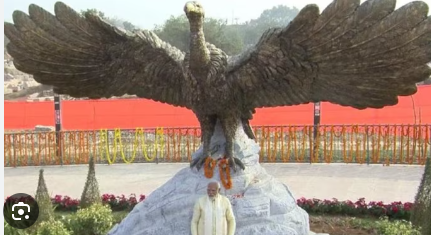Manas Dasgupta
NEW DELHI, Jan 22: Fifty traditional musical instruments from across the country were part of a devotional “Mangal Dhwani” that resonated during the consecration ceremony at the newly constructed Ram temple in Ayodhya.
Orchestrated by Ayodhya’s celebrated poet Yatindra Mishra, the grand musical rendition was supported by the Sangeet Natak Akademi, New Delhi.
The instruments included pakhawaj, flute and dholak from Uttar Pradesh, veena from Karnataka, algoja from Punjab, sundari from Maharashtra, mardala from Odisha; santoor from Madhya Pradesh, pung from Manipur, nagada and kali from Assam; and tambura from Chhattisgarh.
There was also shehnai from Delhi, ravanahatha from Rajasthan, shrikhol and sarod from West Bengal, ghatam from Andhra Pradesh, sitar from Jharkhand, santar from Gujarat, pakhawaj from Bihar, hudka from Uttarakhand and nagaswaram, tavil and mridangam from Tamil Nadu.
Away from Ayodhya consecration ceremony that almost all the non-BJP parties had decided to skip, the West Bengal Chief Minister and the chief of the Trinamool Congress Mamata Banerjee on Monday held the all-religion harmony rally in Kolkata aligning with the Ram temple ceremony on Monday afternoon.
The feisty TMC boss, accompanied by religious leaders of various faiths and party leaders, began the ‘Sanghati March’ from Hazra More in Kolkata. Clad in her trademark white and blue bordered cotton sari with a shawl wrapped around her neck, Ms Banerjee was seen greeting people and onlookers on both sides of the road with folded hands.
Ms Banerjee began the rally after offering puja and prayers at the iconic Kalighat temple of Goddess Mahakali in the city.
Ms Banerjee, who had earlier criticised the BJP over the Ram temple event as a “gimmick show before the Lok Sabha polls,” led the rally from Hazra More culminating at the Park Circus Maidan visiting various places of worship representing different religions, including mosques, churches, and gurdwaras on the route.
The Kerala Chief Minister Pinarayi Vijayan called upon the people to reaffirm their commitment to the secular credentials of the nation and its Constitution by declining to be a part of the inauguration of the Ram temple at Ayodhya.
In his message, released soon after the inauguration of the temple at Ayodhya, Mr Vijayan expressed his concern that of late, the line that demarcates religion and State seemed to be getting thinner.
Delhi Chief Minister Arvind Kejriwal participated in the ‘bhandaras’ organised in different parts of the national capital. Taking to X, he shared a few pictures where he could be seen worshipping at a temple and later participating in the bhandaras, the community-wide food distribution programmes organised on special or auspicious occasions. In another post on his X timeline, Mr Kejriwal congratulated and offered his best wishes to all on this sacred occasion.
The temples across Uttarakhand resonated with devotional songs dedicated to Lord Ram as the consecration ceremony progressed in Ayodhya. ‘Shobha yatras’ (religious processions) were taken out and ‘bhandaras’ organised in processions were taken out and bhandaras held in various parts of the State on the occasion.
Chief Minister Pushkar Singh Dhami began his day by reciting the verses of Ramcharitmanas at a temple within the premises of his official residence ahead of the consecration ceremony. The Chief Minister then reached a cowshed located on the premises of his official residence and offered his service to the “gau mata.”
In Ayodhya before witnessing the consecration ceremony, the Prime Minister Narendra Modi unveiled a statue of “Jatayu” and showered flower petals on workers who were involved in the construction of the Ram Temple.

